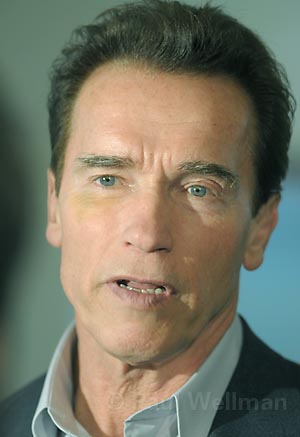Santa Barbara Reacts to Governor’s State Employee Wage Cuts
Nava Calls Tactic "Wrong-Headed"; UC Assures Employees' Salaries
Already anticipated for several days, Governor Arnold Schwarzenegger today issued Executive Order S09-08 – a reduction in state salaries to the federal minimum wage of $6.55 – in response to the current state budget crisis. The governor also ordered the termination of 22,000 other state employees, including temporary and part-time workers, student assistants, and others. Finally, the order includes language directing state agencies to cease new hires, intradepartmental transfers, contracts for services, and authorizations for overtime.

More detailed information as to which employees are affected and which are exempt from the order are expected to be released later today.
Today, State Assemblymember Pedro Nava joined the likes of State Controller John Chiang and Assembly Speaker Karen Bass in criticizing Schwarzenegger’s decision. (Chiang actually said he would refuse to cut state salaries, and the outcome of that promised refusal remains to be seen. Regardless, the governor has full authority to cut the part-time positions.) Nava, who is also chair of the Assembly Banking & Finance Committee, noted some of the 606 people in Santa Barbara and Ventura counties whose jobs would be cut could potentially face foreclosure of their homes. Of that 606, 195 were Santa Barbara County residents, Nava said, and he described them as people who have been protecting the quality of California-produced food through the Department of Agriculture, for example.
Others Santa Barbara County residents standing to lose out on state paychecks include 18 people who work for various Department of Motor Vehicles offices, five who work for the California Department of Fish & Game (whom Nava said were valuable assets in efforts like monitoring oft-spilling North County oil company Greka Energy), and 21 people who work for the California Conservation Corps. Of that last group, Nava noted that some could have potentially just finished helping fight the Gap Fire.
“These jobs cuts are going to translate into hardship in communities all up and down the state : [And] this sends the message that these employees aren’t as valuable as other employees,” Nava said, before deeming the order “wrong-headed.”
Schwarzenegger’s order was cause for concern among the many employees of the University of California (UC) system, including those at UCSB, because they are technically state employees, but UC President Mark Yudof had sent a letter on July 25 warning UC employees of the governor’s consideration of the action, and assured them that everything possible would be done to keep UC wages at their current levels. In a statement released Thursday afternoon by UC Provost and Executive Vice President Wyatt Hume, employees were again assured that current employees of the UC system will be paid at their current salaries, and that all current labor contracts will be honored while the state budget is being resolved.
Paul Schwartz, spokesperson for the UC Office of the President, explained that UC employees’ payroll functions differently than that of other state employees. “We’re a quasi state institution, but structurally and formally, we’re independent of the state,” he said, explaining that although they receive partial state funding, much of their money comes from private sources and research grants. “We’re looking at our situation and our operation, and even though these things don’t directly apply, we’re looking at the things we have to do to address our own budget and help the state.”



